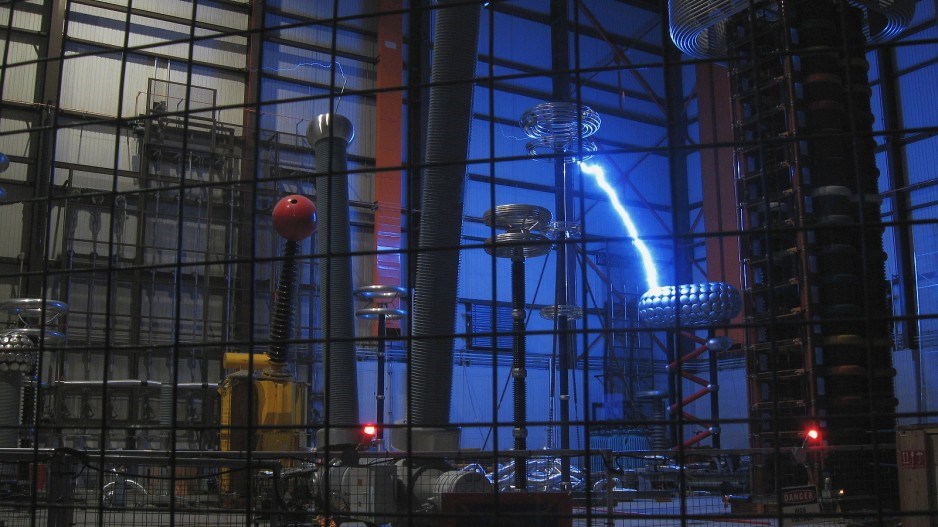Sitting between a WalMart (NYSE:WMT) and a banquet hall on Surrey’s 88 Avenue, Powertech Labs’ location doesn’t scream hip high-tech the way Vancouver’s bike-path-adjacent startups in Yaletown or Mount Pleasant do.
But it would be a mistake to dismiss the innovations coming out of the BC Hydro subsidiary for that reason, according to managing director Raymond Lings.
“You’ve got this lab out in Surrey. It’s a large lab. It’s got 150 people, experts in their own right [who] understand the utility business,” he said. “Maybe we can use that expertise and do something in the marketplace.”
Unlike its parent Crown corporation, Powertech has a commercial mandate that has led to hydrogen-fuelling technology partnerships with Shell (LON:RDSB) and Praxair (NYSE:PX).
Testing the equipment and technology BC Hydro uses to support its infrastructure remains Powertech’s primary mandate after spinning off from the utilities provider’s research and development (R&D) division in 1979.
But Powertech’s profit-making nature has pushed it to diversify over four decades.
About 60% of the lab’s resources go into testing; the remainder is split evenly between research and consulting.
“What we learn in R&D can then feed the consulting business,” Lings said. “What we learn in testing then drives us to look at R&D projects that can help solve problems in the marketplace.”
For instance, researchers developed Powertech’s DSATools software in the 1990s to fill a gap in designing, analyzing and controlling power grids.
When it realized its commercial potential, Powertech began selling the software to utilities providers in the U.S., the U.K. and China.
“We didn’t license it out we kept it, and we’re going to exploit it to the hilt. One of the reasons why we keep it is because through this software, it gives us an avenue into the consulting side of the industry,” Lings said, adding that Powertech experts continue working with DSATools clients to manage power grids.
Meanwhile, Powertech’s research into hydrogen fuel cells and natural gas stretches back 20 and 30 years, respectively, which has drawn major clients like Hyundai to its testing facilities.
“Typically our expertise is exported, so we have clients pretty much all around the world,” said Philip Horacek, Powertech’s senior manager of gas systems and engineering.
“We do pioneer a lot of testing capability. … There isn’t a lab in the world that does everything we do.”
While most researchers travel to the U.S. to provide testing services to clients, Powertech’s 21-lab, 11-acre campus is used for testing everything from power lines used in the field to hydrogen-fuelling systems used in passenger vehicles.
“People have funny ideas when you say hydrogen,” Don Romano, Hyundai Canada’s president and CEO, told Business in Vancouver.
The company has its vehicles certified at Powertech, where Romano said experts have done everything from dropping hydrogen fuel cell cars from roofs to shooting them with bullets to prove the fuelling systems are stable.
“We crash test them as we would any conventional vehicle. And designed correctly, hydrogen quite frankly is even safer than a gasoline vehicle because of its molecular characteristics.”
The trick, though, is getting an independent organization to prove that.
“[Manufacturers] do have a credibility problem testing, when they come out and test their own product and they give out their own test report, because obviously buyers of the technology are going to question the neutrality of that test report,” Lings said. “And that’s where Powertech plays a critical role.”
As demand for clean-energy alternatives has risen, Lings said top-line growth sits at about 10%. Meanwhile, Powertech’s workforce has grown by 50% since the beginning of the decade.
Lings said much of that growth can be attributed to finding the right balance among testing, consulting and research.
“All three need to work together in concert for us to be effective in the marketplace. If you’re just a test lab, then we kind of miss out on the nuances of applying our knowledge back into the industry.”




